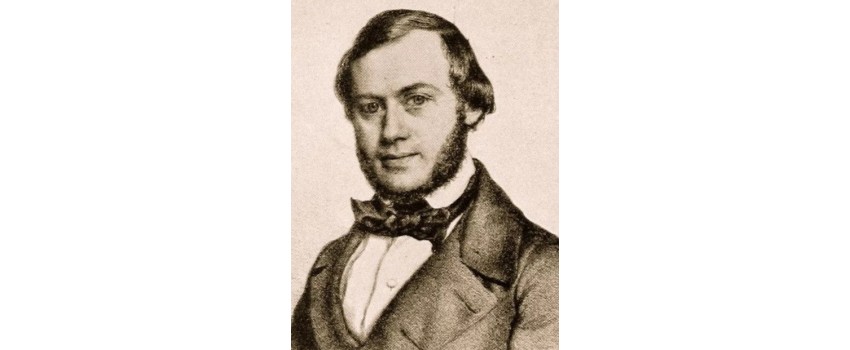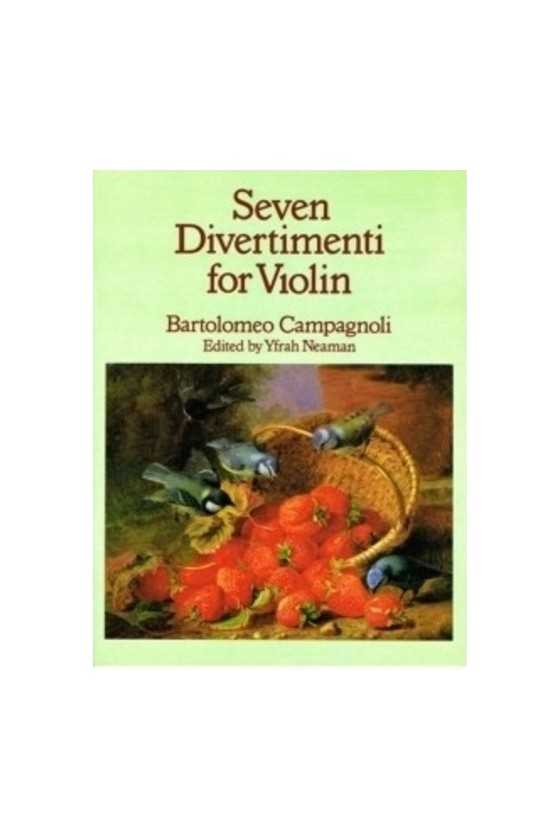Campagnoli, Bartolomeo
Bartolomeo Campagnoli, a renowned Italian violinist and composer, left an indelible mark on the European music scene in the 18th and 19th centuries. Born on September 10, 1751, in Cento, Italy, Campagnoli's talent and passion for the violin propelled him to great heights. Throughout his life, he embarked on numerous concert tours, spreading the Italian violin style and captivating audiences across Europe.
Early Years and Musical Education
Bartolomeo Campagnoli's musical journey began in his hometown of Cento, where he was born into a family of merchants. Fascinated by the violin from a young age, he started his formal training locally in Bologna, before continuing his studies in Modena under the guidance of Paul Guastarobba. Guastarobba, having studied with the renowned violinist Giuseppe Tartini, imparted valuable knowledge to Campagnoli, shaping his musical foundation.
The Florence Years
In pursuit of further musical growth, Campagnoli spent a significant period in Florence, studying under the tutelage of the esteemed violinist Pietro Nardini. This period in Florence proved influential in Campagnoli's career, as he honed his skills and immersed himself in the vibrant musical atmosphere of the city. He also had the opportunity to showcase his talent as part of the orchestra at Teatro Della Pergola, an experience that further enriched his musical prowess.
Musical Travels and European Recognition
The year 1775 marked a turning point in Campagnoli's career as he ventured beyond Italian borders to explore the wider European music scene. He arrived in Rome and joined the orchestra at Teatro Argentina, solidifying his reputation as a skilled violinist. In 1776, he received a prestigious appointment as the kapellmeister to the bishop of Freising in Bavaria, a testament to his growing recognition as a musician.
Campagnoli's thirst for musical exploration led him on a concert tour of northern Europe in 1778, spending time in Grodno and Warsaw. His talents were well-received, and his reputation continued to flourish. In 1779, he was appointed to the court of the Duke of Courland in Dresden, where he held a prominent position. During his time in Dresden, he embarked on a tour of Sweden in 1783, an experience that resulted in his election as a member of the prestigious Royal Swedish Academy of Music Stockholm. The following year, in 1784, Campagnoli embarked on a grand European tour, captivating audiences primarily in Germany and Austria.
A Masterful Treatise on Violin Playing
In 1797, Bartolomeo Campagnoli produced his magnum opus, the "Metodo per Violino," a comprehensive treatise on violin playing. This seminal work provided invaluable insights into the playing techniques of the Baroque and Classical periods, showcasing Campagnoli's expertise and pedagogical prowess. The "Metodo per Violino" continues to be studied by aspiring violinists and serves as a testament to Campagnoli's dedication to preserving and advancing the art of violin playing.
Leipzig and Beyond
After departing from the court of the Duke of Courland, Campagnoli's musical journey led him to Leipzig, where he assumed the esteemed position of concertmaster in the Leipzig Gewandhaus Orchestra in 1797. For over two decades, he played a pivotal role in the orchestra, leaving an indelible impact on the musical landscape of the city. In 1801, during a visit to Paris, Campagnoli witnessed the breathtaking performance of renowned violinist Rodolphe Kreutzer, leaving an indelible impression on him.
The Leipzig years were marked by Campagnoli's virtuosity and skillful performances. His play, though rooted in the traditions of the old school, was hailed as clean and accomplished by fellow musicians, including the esteemed violinist and composer Louis Spohr. Campagnoli's tenure in Leipzig spanned over two decades, ending in 1818, solidifying his legacy as one of the most influential figures in the city's musical history.
Musical Legacy and Impact
Bartolomeo Campagnoli's contributions to the world of music extend far beyond his own performances. His treatise on violin playing, the "Metodo per Violino," continues to inspire and educate generations of violinists. Campagnoli's dedication to preserving the traditions of the Baroque and Classical periods ensures that his influence endures, and his musical legacy remains an integral part of violin pedagogy.
Conclusion
Bartolomeo Campagnoli's journey through music is a testament to the power of passion, dedication, and talent. From his humble beginnings in Cento to captivating audiences across Europe, Campagnoli left an indelible mark on the musical landscape of his time. His virtuosity, combined with his commitment to preserving the traditions of the past, solidifies his place among the great musicians of history. As we continue to study his treatise and celebrate his contributions, Bartolomeo Campagnoli's legacy lives on, inspiring generations to come.


